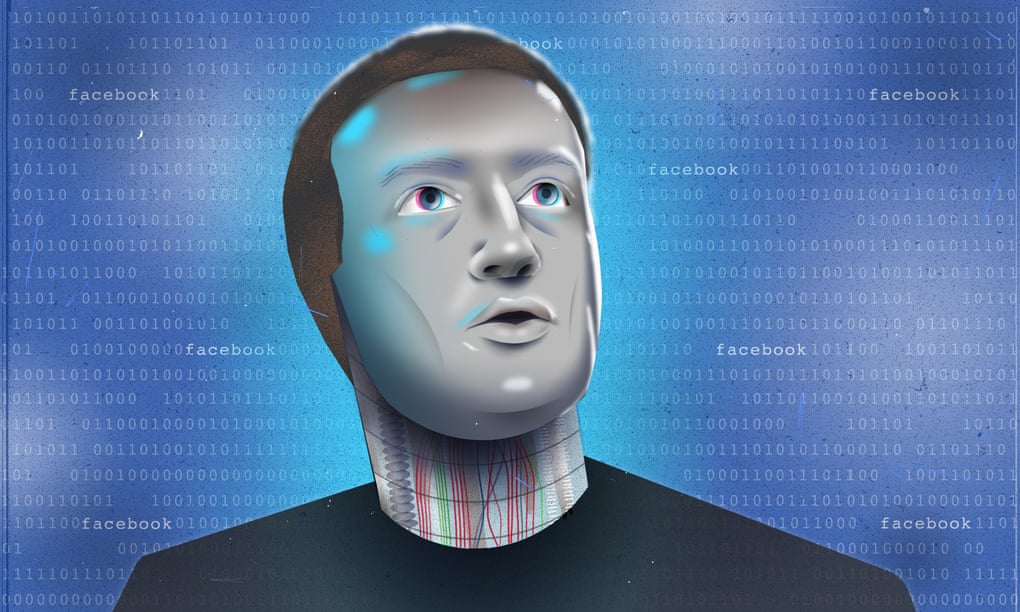by JULIA CARRIE WONG

Facebook’s Mark Zuckerberg won’t talk to the Guardian. So we fed everything he says into an algorithm, built a Zuckerbot, and interviewed it
Mark Zuckerberg is press shy. The 35-year-old billionaire’s innate sense of swagger (“I’m CEO … bitch”) has failed to translate into confident public speaking. But after the Cambridge Analytica scandal precipitated a massive crisis of trust for the company, Zuckerberg was forced to step out of his comfort zone and start answering for himself and his company.
In the year and a half since the story broke in the Observer, Zuckerberg has testified before the US Congress twice and sat for interviews with the New York Times, Washington Post, CNN, NBC, ABC, CBS, Wired, Recode and Vox – everyone, it has seemed, except the Guardian.
So since Zuckerberg won’t speak to the Guardian, we built a Zuckerbot that will.
We worked with Botnik Studios, the team behind Harry Potter and the Portrait of What Looked Like a Large Pile of Ash, to create a predictive keyboard trained on three years of interviews, speeches, blogposts and testimony from the Zuckerberg Files – more than 200,000 words of Zuckerverbiage in all. Guardian and Observer journalists then provided the questions, and Botnik used the Zuckerbot to produce the answers.
The result is this exclusive interview, which we feel confident is more revealing of the man behind Facebook than anything else you’ll read this year.
Hi Mark, thanks so much for agreeing to talk with the Guardian. Let’s jump right into our questions. You gave a major speech this year about how important it is that Facebook “gives people voice”. How does Facebook give people a voice, Mark?
First, I want to thank you all for being a part of my mission. The purpose of Facebook is to bring about internet for people in the digital room. It is about advertising dollars to people who pay to be able to pay. We believe in building $8bn of voice on the platform for dads who are hungry for coffee.
Do you think that Facebook has made the world a better place?
Facebook is a happy version of what I am. I am pretty pro people and um … I am definitely strongly about baseball consumption. Friends, we can do better than banning misinformation and dancing in the air. I want to capture the good news here in California: people are clicking on Facebook until they love it.
What would you do if someone presented you with irrefutable evidence that Facebook is bad for the world?
Here is what I can assure you: if you think Facebook is a force for Facebook, you will be curated offline and our friends will help you remove bad speech from your preferences.
This has been a big year for thinking about how Facebook affects democracy. Do you believe in democracy?
I believe in a dream of purpose and hope. I actually believe it is inspiring for everyone to be an entrepreneur. But also for me to be an intermediary between people and the future of the internet.
The Guardian for more
